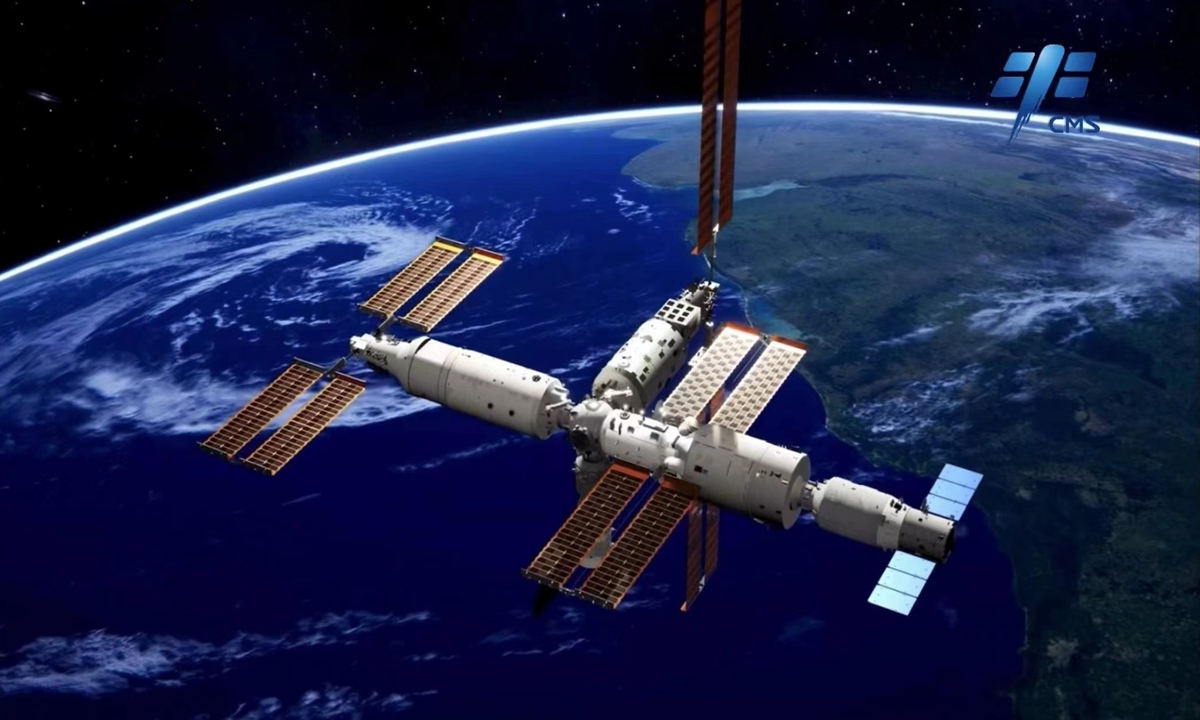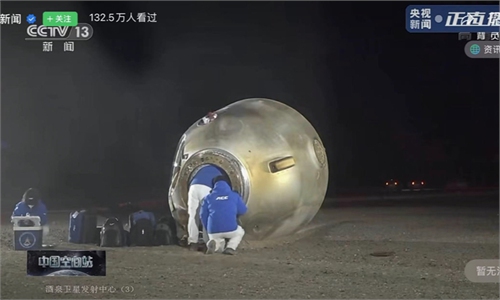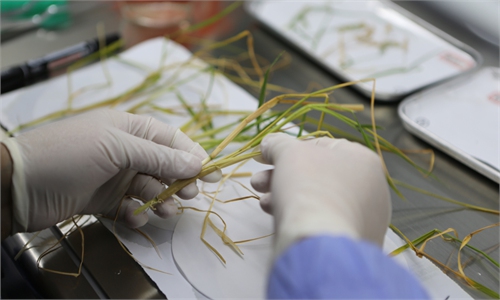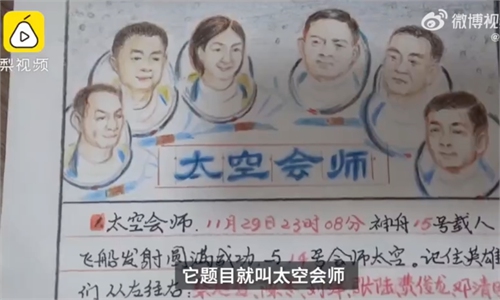
Simulated image of Mengtian docking with China Space Station combination Photo: courtesy of CMSA
Four out of the total nine of the first batch international experiments are expected to be sent to the China Space Station in 2023, according to the UN Office for Outer Space Affairs (UNOOSA) Acting Director Niklas Hedman in a recent interview, who also lauded the space station as "truly international" and one that offers an "absolutely fantastic opportunity for researchers around the world."
The UNOOSA official's remarks over the weekend came following China's completion of the assembly of the country's first permanent space station and all space launch missions scheduled at the construction stage with the latest Shenzhou-15 manned spaceflight mission.
Chinese space observers said that the country's genuine openness in sharing the use of its mega space infrastructure greatly contrasts with and offsets the current turbulence around the world, which is result of certain countries' political games of forcing countries to take a side in bloc confrontation even in space,
According to Hedman, nine projects - including 23 research institutions and universities from a variety of countries across all five regional groups of the world - were selected. Seven of those projects are currently in development and four of those teams could deliver their experiments to the China Manned Space Agency (CMSA) for launch during 2023.
Headman said that "it [the China Space Station] is there and it will be open to international projects and researchers. It is truly international in that sense…therefore it is an amazing achievement for China's national space program but also internationally."
"It is an absolutely fantastic opportunity for researchers around the world to use the China Space Station," he said.
The Global Times previously reported that the CMSA and the UN Committee on Peaceful Use of Outer Space (COPUOS) announced in June 2019 that these nine international projects in aerospace medicine, life sciences and biotechnology, microgravity physics and combustion science, astronomy and other emerging technologies are from 17 countries and 23 research bodies, including Polar-2, a Gamma-ray burst polarimetry project jointly proposed by Switzerland, Poland, Germany and China, and a spectroscopic investigation of nebular gas by India and Russia.
Projects from Italy, Japan, Peru, Mexico and Saudi Arabia were also selected as the first batch of China Space Station awardees under the UNOOSA cooperation project going by the Access to Space for All, the UN office official website shows.
Chinese space observers said that compared with the highly exclusive cooperative mechanism of the International Space Station (ISS), the China Space Station adopts true openness under a UN framework.
For the ISS - a partnership among NASA, Russia, Canada, the European Space Agency and Japan that has been in orbit for more than two decades - laboratory resources are split among the partner nations, which then offer their scientists opportunities to send experiments to the space station. However scientists living in countries that are outside of the partnership are generally shut out of the ISS, the New York Times reported on December 4.
China's Space Station is the first of its kind to be open to all UN member states. Let us hope that greater success is still to come for China's manned space program and that China's space station will soon become a "home in space" for all, Chinese Foreign Ministry spokesperson Zhao Lijian told a routine press conference on November 1.
China sends only fair and sincere invitations to the rest of the world to come on board its space station, especially for those developing countries that fail to meet the high threshold yet have great space development ambitions. China cares and hopes that experiments of these countries will yield breakthroughs in terms of livelihood improvement in sectors such as communications and agriculture, Wang Ya'nan, chief editor of Beijing-based Aerospace Knowledge magazine, told the Global Times on Sunday.
The world may be challenged by uncertainties and great turbulence caused by political games staged by the US to force countries to take a side in the camp confrontation, but eventually China's true openness and inclusiveness will prevail in space cooperation, Wang predicted.
Wang speculated that although the US-led project failed to make it to the first batch of international projects on the China Space Station, the door of future cooperation is still open. "It is a result of scientific consideration, rather than a political decision in the sense that the US has closed the way to invite China to the ISS cooperation."
Apart from the genuine openness, the technology advantages of the newer China Space Station also greatly attract researchers from around the world, Sun Jianchao, the technology manager with the Chinese team of the POLAR-2, told the Global Times on Sunday.
The China Space Station has a high-volume and high-speed data transmission capability and a powerful in-orbit computing capability provided by the supercomputer on the space station, which facilitates space experiments, Sun explained.
During the primary stage of the selection work, 42 applications were received from scientists of 27 countries and regions in Asia, Europe and North and South America. Seventy-two international cooperation teams and 258 research fellows submitted applications.
Sun recalled that it took the four-nation applicants about one year to attain the approval to come on board in 2019.
The POLAR-2 experiment is expected to be sent to the China Space Station by around 2025, via the Tianzhou cargo spacecraft. It will be then installed outside the cabin of the Wentian lab module with the help of taikonauts and the smart robotic arms, according to Sun.
Data will be shared among project participants in an undifferentiated manner, Sun said.




